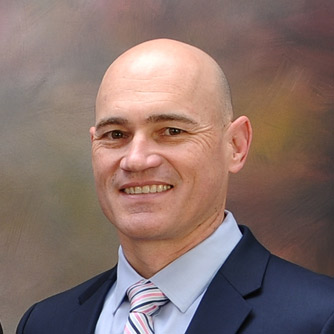215.348.1776
Estate Planning
Estate Administration
Beneficiaries’ Guide to Estate or Trust Administration
As a beneficiary of an estate or a trust, it’s in your interest to keep on top of what’s happening during the estate or trust administration. You may be entitled to receive assets or income as a beneficiary either through a probate or outside of probate. You may also have certain rights under law to monitor the administration of the estate or trust to be sure that there is no waste or conversion (theft) by the executor, administrator or trustee.
Probate is the court process by which a deceased person’s debts and taxes are paid, and assets are transferred to appropriate beneficiaries. Wills usually go through probate, as do estates of persons who pass away without a will. Many times it takes over a year to complete the probate process.
You can also receive assets outside of a probate through beneficiary designations (such as life insurance, annuities, IRAs, 401(k)s and other retirement plans), assets from a living trust, or from a joint tenancy, “in trust for” or “TOD” title of an asset. Distributions of assets outside of probate may take weeks or a few months.
In order to be sure that you receive everything to which you are entitled, you should do the following things:
1. OBTAIN COPIES OF THE ESTATE DOCUMENTS
As a beneficiary, you will want to get copies of the following documents as soon as possible from the estate or trust attorney:
- Will and all codicils (amendments)
- Trust and all amendments
- Beneficiary designations (bank or brokerage accounts, life insurance and/or retirement plans) naming you, and associated statements showing the value and types of assets included
- Inventory of all assets, with estimated values
Some documents may be available right away since they are public records (such as the will and codicils), while you may have to take extra steps to obtain others.
When you contact the estate or trust attorney for your copies of these documents, also ask for a timeline and a summary of the steps they will follow to administer the estate or trust. This will give you some idea of what is happening, and if the proceedings drag on, you may contact the attorney.
2. HIRE YOUR OWN COUNSEL
Depending on how much you will be inheriting, you may want to consult with an attorney experienced in probate and trust matters. Ask first how the attorney charges for services (usually it’s on an hourly basis).
Meet with your attorney to get an overview of the administration process and your rights. You can then decide if you need continuing legal and tax assistance in obtaining and interpreting various documents you will encounter.
3. OBTAIN DOCUMENTS FILED IN PROBATE COURT
Probate court documents are public records. Here are two ways to receive copies of court documents:
1. Write the court clerk with the court case name, the case number, and a description of the desired documents that have been filed. Call the clerk first to find out the cost of getting the copies, as you will need to send a check before they are released.
Normally, you can request plain photocopies of documents or ones that are certified by the court clerk as exact duplicates. For most purposes, the plain photocopies are sufficient and cost a lot less than the certified copies. You may want certified copies of certain court orders (e.g., an order of distribution).
2. You may be able to avoid waiting for documents and get them free as they are filed in court. See if you can file a request for special notice or equivalent document putting on record your ongoing request that every probate court document be sent to you or to your attorney. This is a good way to stay in the loop throughout the estate proceeding.
4. REQUEST INFORMATION ON THE ADMINISTRATION OF LIVING TRUSTS
If the deceased had a living trust, it is not a public record, so there isn’t a comparable step for keeping tabs on its administration. Instead, periodically contact the trust attorney or trustee to find out the status of the trust. As a beneficiary, you are usually entitled to an accounting each year of the assets that came into the trust, the income, expenses, sales and purchases of assets during the year, and what’s on hand at the end of the year.
5. SECURE NEEDED TAX INFORMATION
Obtain copies of five essential tax documents that can help you understand the estate:
- Deceased’s federal estate (death) tax return
- Deceased’s state estate tax return
- Appraisals (valuations) of the assets in the estate
- Deceased’s final federal and state income tax returns
- Any income tax returns that must be filed for any estate that still retains income-earning assets as of the end of the year
The federal estate tax return is required to be filed within nine months of a death for an estate that’s over the federal tax-exempt amount of $5 million in 2012 and 2013. If the values are under the tax exempt amounts no federal estate tax returns may be required EXCEPT in the case fairly significant-sized estates where the decedent’s executor, by filing a federal estate tax return, may allocate the unused portion of the decedent’s estate tax exemption to the surviving spouse’s estate. This is called “portability”.
A six-month extension can be obtained to file the return. The return lists all of the assets that can be taxed -– and their values -– in the deceased person’s estate (including IRAs, 401(k) s, other retirement plans and most life insurance). The calculation of estate tax is based on the values at the time of death.
Another value is sometimes shown on the estate tax return, called the alternate valuation date value. This is the value six months after the date of death. Sometimes assets (e.g., stocks or real estate) go down in value after the date of death. If the lower alternate valuation date value is used instead of the higher date of death value, then the estate is smaller and the estate tax due is reduced.
The values placed on the estate’s assets are important for several reasons:
- They are used to calculate how much estate tax may be due. If the estate’s value is over the exempt amount, estate tax will be due. Depending on how the will, living trust and state laws are structured, you may be paying part or all of the tax, even on assets that don’t go to you.
- The value placed on the estate’s assets affects the starting point for you to calculate any gain or loss on the assets, if and when you sell them. For real estate, the value of the asset also affects how much depreciation you can take on your tax returns.
Estate and trust administration can get very complicated and is filled with many rules and traps; be sure that you are represented by knowledgeable trustworthy advisors.
Estate Planning and Administration Practice Areas
Practicing Attorneys
Estate Administration News
AREAS OF PRACTICE

THE CLEMONS RICHTER & REISS, PC DIFFERENCE
Stefan Richter
Stefan Richter is a 1990 graduate of Temple University with a Bachelor of Arts in Philosophy, and a 1993 graduate of Temple University School of Law. The focus of his practice has been on civil litigation; including association, bankruptcy, construction, corporate, and insurance law. Stefan concentrates in all aspects of community association law, including assessment collections, document interpretation and amendments, covenants enforcement, transition issues and associated litigation. Admitted to practice before State and Federal Courts in Pennsylvania and New Jersey, Stefan is also a trained mediator.
MEMBERSHIPS & ASSOCIATIONS










